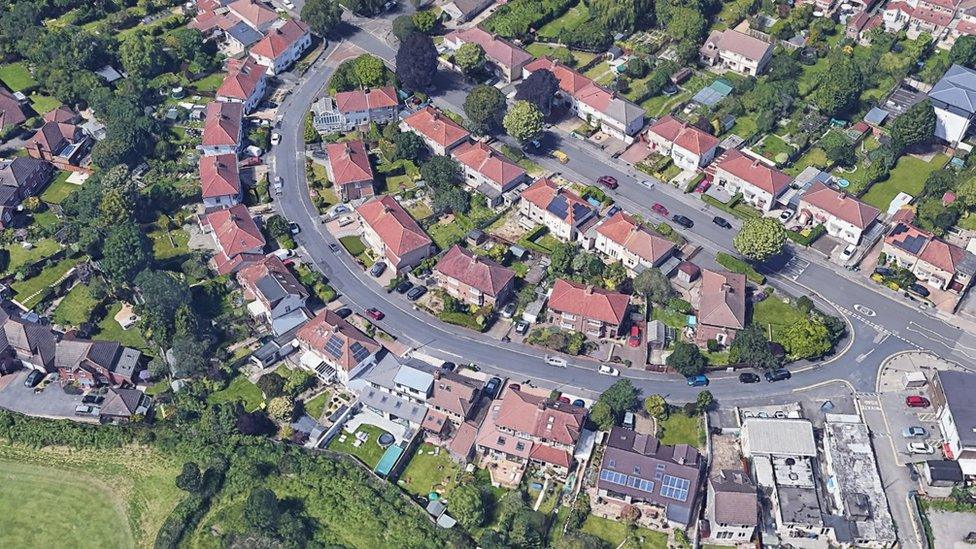Rules to stop too many HMOs not working, say some councillors
- Published

Licensed HMOs are are the only type of bedsit that officially count towards the concentration of shared properties in an area
New rules supposed to protect areas from being swamped by houses of multiple occupation (HMOs) are failing, South Gloucestershire councillors say.
A new policy by South Gloucestershire Council limits how many family homes can be turned into HMOs in one area.
But a loophole means only licensed HMOs count towards the number of such homes.
Unauthorised conversions and properties with fewer than five people, not needing a licence, are not counted when considering new HMO applications.
The issue came to light at a meeting of the development management committee on 3 February, the Local Democracy Reporting Service (LDRS) said.
Members ended up deadlocked over plans for an eight-bedroom HMO in Filton, with objections from 39 residents, both the Labour and Conservative ward councillors and the town council.
But planning officers recommended giving the go-ahead and said the application complied with policies, including the new rules in the supplementary planning document (SPD), brought in in September.
'Utterly abhorrent'
Filton ward's Labour councillor Adam Monk told the meeting the "utterly abhorrent" proposed change of use of the property would create noise and disturbance, exacerbate parking problems, was out of keeping with the area and had windows overlooking neighbours.
He said the maximum threshold in the new supplementary planning document (SPD) for concentration of bedsits in a locality was 10% of households but that this part of Filton had 11.2%.
But the councillors were told licensed HMOs, which are the only type of bedsit that officially count towards the concentration of shared properties in an area, represented only 1.3% of households in the locality, and there was only one other such household within a 100m radius.
The planning officer said it was also not possible to refuse on grounds of neighbours' loss of privacy because that issue had already been considered in separate extension and loft conversion applications last year.
Members heard the council required a minimum of 0.5 car parking spaces per bedroom for an HMO and that four were being provided on site.
A transport officer said it was unusual for an HMO application to fully comply with parking standards and that because he could not support refusal on those grounds, the authority was at risk of having costs awarded against it at appeal.
'Depressing'
Conservative councillor for Stoke Gifford, Ernie Brown, said: "I'm finding it difficult to get my head around the officer's recommendation for approval.
"The SPD was supposed to help with guidance on this and it just hasn't done anything."
A letter from residents said "the increase in traffic is a huge safety concern and the noise pollution, which is common in HMO properties, will have a profound effect on the community".
A motion to refuse permission fell because it was tied at three in favour, three against and three abstentions and no-one would second the proposal of the committee chairman, councillor Keith Burchell, to approve the plans, on the basis he said the SPD provided no reasons to refuse the application.
The development management committee instead sent it to the spatial planning committee for a decision.

Follow BBC West on Facebook, external, Twitter, external and Instagram, external. Send your story ideas to: bristol@bbc.co.uk , external
- Published25 January 2022

- Published24 July 2021
